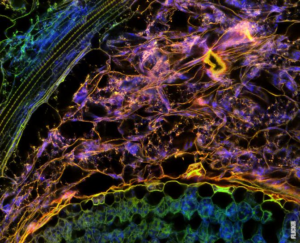The Mystery of Irritable Bowel Syndrome Unveiled
Irritable Bowel Syndrome (IBS) is a common gastrointestinal disorder that affects millions of people worldwide. Despite its prevalence, there is still much to be discovered about this mysterious condition. From its unpredictable symptoms to its elusive causes, IBS continues to baffle both patients and medical professionals alike. However, there is hope on the horizon as researchers strive to unlock the secrets of this enigmatic syndrome.
A Multifaceted Approach to Treatment
Treating IBS requires a multifaceted approach that addresses both the physical and psychological aspects of the condition. While there is no cure for IBS, a combination of lifestyle changes, dietary modifications, and medications can help manage its symptoms and improve the quality of life for those affected.
1. Lifestyle Changes for IBS
Implementing certain lifestyle changes can have a significant impact on managing IBS symptoms. Regular exercise, stress reduction techniques such as yoga or meditation, and maintaining a consistent sleep schedule are all beneficial in alleviating the discomfort associated with IBS.
2. The Role of Diet
Diet plays a crucial role in managing IBS symptoms. While trigger foods can vary from person to person, certain dietary modifications have shown promising results. Increasing fiber intake, avoiding gas-producing foods, and following a low FODMAP diet are some dietary approaches that can help ease symptoms.
3. Medications for IBS
Various medications can be prescribed to alleviate specific symptoms of IBS. Antispasmodics can help relieve abdominal pain and cramping, while laxatives or anti-diarrheal medications can target bowel irregularities. Additionally, antidepressants may be prescribed to address the psychological factors often associated with IBS.
Post
Post
The Promise of Alternative Therapies
In recent years, alternative therapies have gained attention as potential treatments for IBS. Acupuncture, probiotics, and herbal remedies have shown promising results in managing symptoms and improving overall well-being. While further research is needed, these alternative approaches offer hope to those seeking non-traditional treatment options.
The Ongoing Quest for Answers
Despite the advancements in understanding and treating IBS, there is still much to be discovered. Researchers continue to explore the intricate mechanisms behind this complex syndrome, aiming to develop more targeted and effective treatments. As we unravel the mysteries of IBS, one thing is certain: the quest for answers is far from over.



